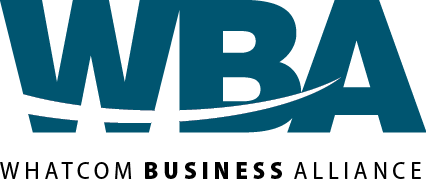Why aren’t we hearing more about record number of statewide initiatives?
Washington’s ‘direct democracy’ deserves more respect
OpEd from Simon Sefzik
In 1912, Washington state pioneered “direct democracy” as one of the first to formalize an initiative and referendum process, allowing citizens to organize and directly create and reform laws. This gave a voice to people beyond the halls of a distant capitol building.
The Secretary of State’s Office explains : “Washington’s history has shown the initiative and referendum processes to be effective in protecting the people’s interests. In fact, many of our most significant laws, such as our public disclosure laws, were enacted by this process.”
For historical context, only six times in the past 110 years have two initiatives qualified in the same year. In 1972, eyes were raised when, for the first time, three qualified in one year.
Here’s why that matters: the year 2024 just started, but history has already been made with the certification of six separate initiatives , including a combined 2.6 million signatures, that will be on your November ballot. While it’s true many of these were attained by paid signature gatherers, that is not uncommon in the modern political era.
One initiative repeals the restrictions on vehicular police pursuits, similar to a bill Alicia Rule (D-Blaine) unsuccessfully pushed during the 2023 legislative session. The others involve repealing the capital-gains tax; allowing employees to opt out of the long-term care payroll tax; a ban on state and local income taxes; a parental notification school requirement; and, perhaps most controversially, a repeal of the Climate Commitment Act, which has been attributed (and finally acknowledged by Gov. Inslee) for increasing gas costs by about 50 cents per gallon.
Regardless of your thoughts on each of those topics, the political dynamics are worth acknowledging: the Democratic party controls the House, Senate and Executive branch. However, they have uniformly voted down procedural motions from the minority party to hold hearings on each initiative.
Why does that matter? Legally, once certified, the Legislature is required to consider each initiative and decide whether to enact them directly or have the people vote on them in November (or an alternative initiative). More importantly, Article II, Section 1 of the state Constitution requires that initiatives “take precedence over all other measures in the legislature except appropriation bills.”
Despite this constitutional obligation, the House, along party lines, has voted against even requiring committee hearings for a single one of the initiatives.
I, for one, believe in the people’s initiative process. I’m disappointed the majority party, which speaks often of elevating democracy, refuses to acknowledge the millions of signatures and voices behind the initiatives. I’m disappointed likewise they have ignored their constitutional duty because some of their members may disagree with the policy impacts of the initiatives.
Regardless of how you feel about the initiatives, I would encourage you to ask your local senators (Liz Lovelett, D-Anacortes and Sharon Shewmake, D-Bellingham) and representatives (Alex Ramel, D-Bellingham; Debra Lekanoff, D-Bow; Alicia Rule, D-Blaine; and Joe Timmons, D-Bellingham) for their thoughts on each initiative and request, at the very least, a committee hearing be scheduled so that each viewpoint can be heard. Our elected representatives owe it not just to the constitution, but to their constituents.
Simon Sefzik is a former Washington state senator for the 42nd Legislative District and now works as a director for Project 42, a nonprofit aiming to build a durable infrastructure to improve the course of Washington.
The post Why aren’t we hearing more about record number of statewide initiatives? appeared first on Whatcom Business Alliance.
